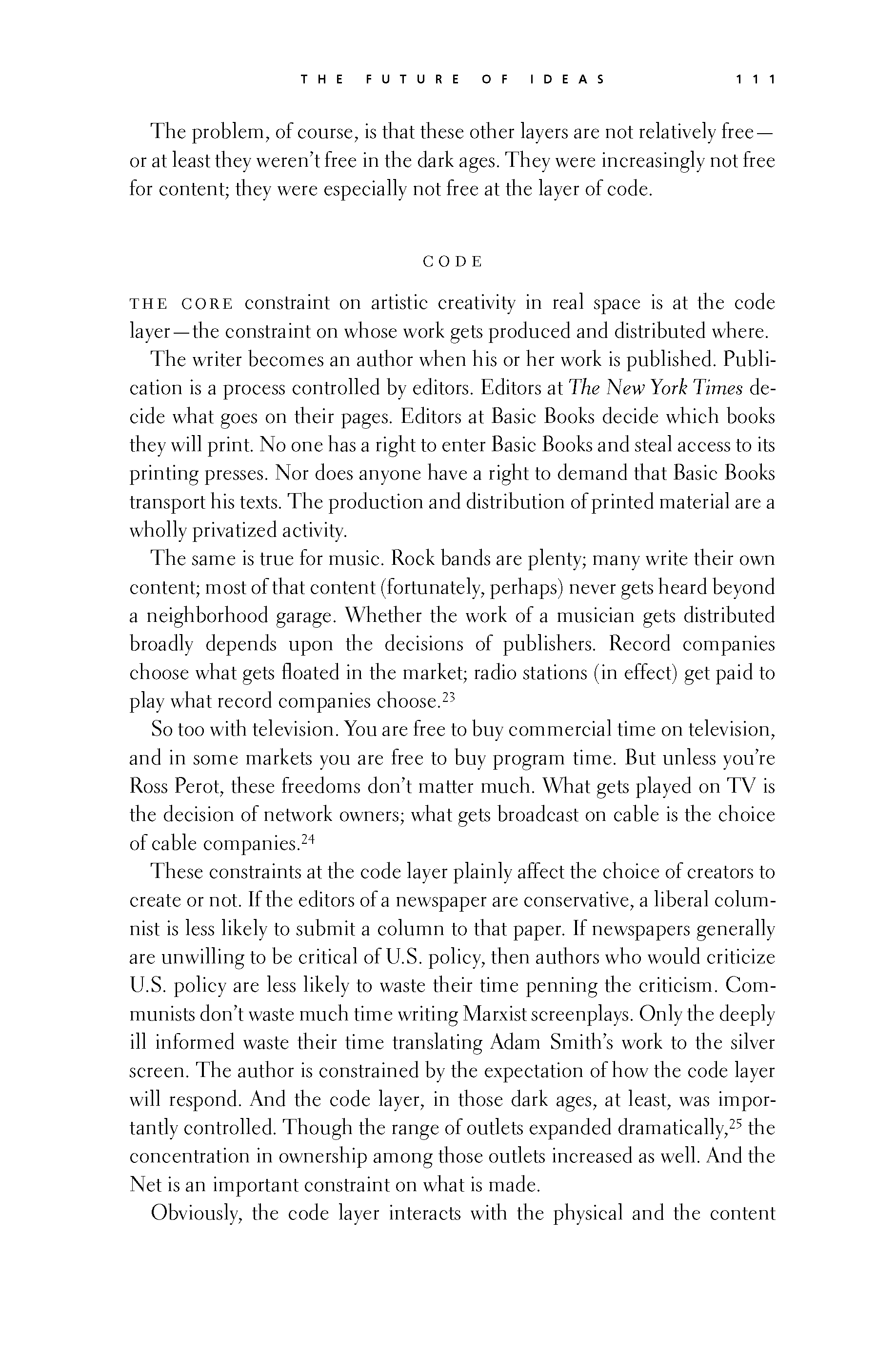 p110 _
-chap- _
toc-1 _
p111w _
toc-2 _
+chap+ _
p112
p110 _
-chap- _
toc-1 _
p111w _
toc-2 _
+chap+ _
p112
The problem, of course, is that these other layers are not relatively free --
or at least they weren't free in the dark ages. They were increasingly not free
for content; they were especially not free at the layer of code.
/tab\/tab\CODE/tab\/tab\
The core constraint on artistic creativity in real space is at the code
layer -- the constraint on whose work gets produced and distributed where.
The writer becomes an author when his or her work is published. Publi-
cation is a process controlled by editors. Editors at _The_New_York_Times_ de-
cide what goes on their pages. Editors at Basic Books decide which books
they will print. No one has a right to enter Basic Books and steal access to its
printing presses. Nor does anyone have a right to demand that Basic Books
transport his texts. The production and distribution of printed material are a
wholly privatized activity.
The same is true for music. Rock bands are plenty; many write their own
content; most of that content (fortunately, perhaps) never gets heard beyond
a neighborhood garage. Whether the work of a musician gets distributed
broadly depends upon the decisions of publishers. Record companies
choose what gets floated in the market; radio stations (in effect) get paid to
play what record companies choose.[7-23]
So too with television. You are free to buy commercial time on television,
and in some markets you are free to buy program time. But unless you're
Ross Perot, these freedoms don't matter much. What gets played on TV is
the decision of network owners; what gets broadcast on cable is the choice
of cable companies.[7-24]
These constraints at the code layer plainly affect the choice of creators to
create or not. If the editors of a newspaper are conservative, a liberal colum-
nist is less likely to submit a column to that paper. If newspapers generally
are unwilling to be critical of U.S. policy, then authors who would criticize
U.S. policy are less likely to waste their time penning the criticism. Com-
munists don't waste much time writing Marxist screenplays. Only the deeply
ill informed waste their time translating Adam Smith's work to the silver
screen. The author is constrained by the expectation of how the code layer
will respond. And the code layer, in those dark ages, at least, was impor-
tantly controlled. Though the range of outlets expanded dramatically,[7-25] the
concentration in ownership among those outlets increased as well. And the
Net is an important constraint on what is made.
Obviously, the code layer interacts with the physical and the content
[[111]]
p110 _
-chap- _
toc-1 _
p111w _
toc-2 _
+chap+ _
p112